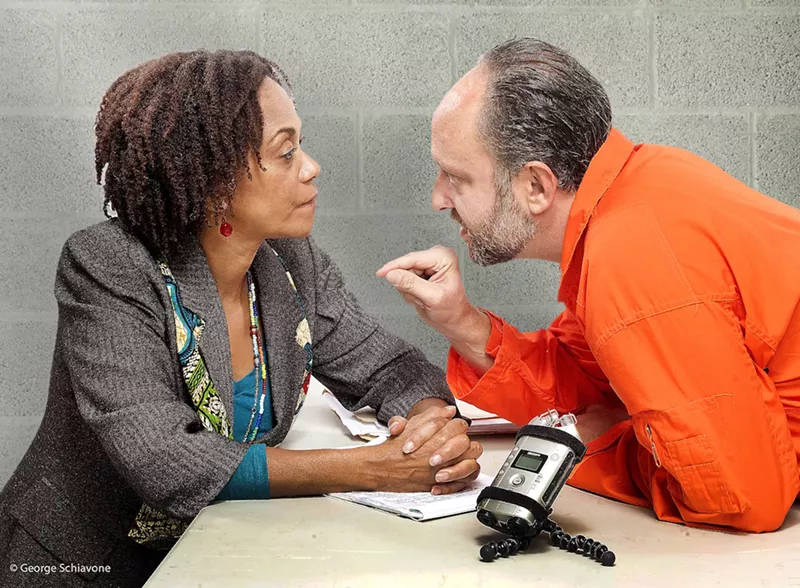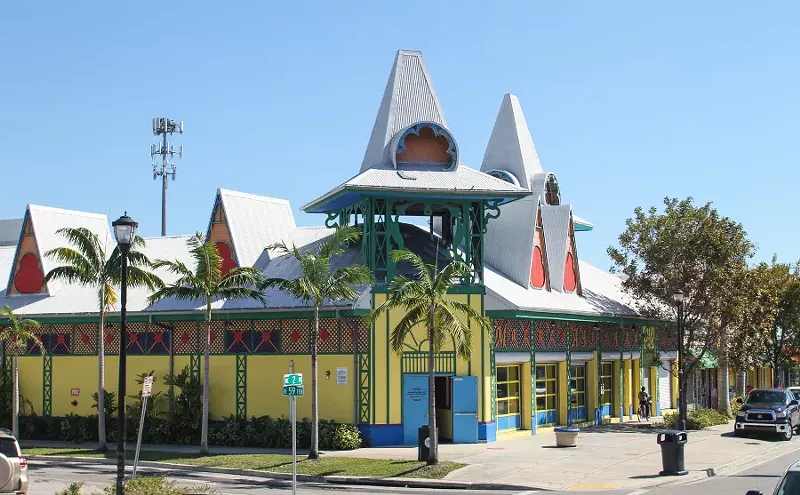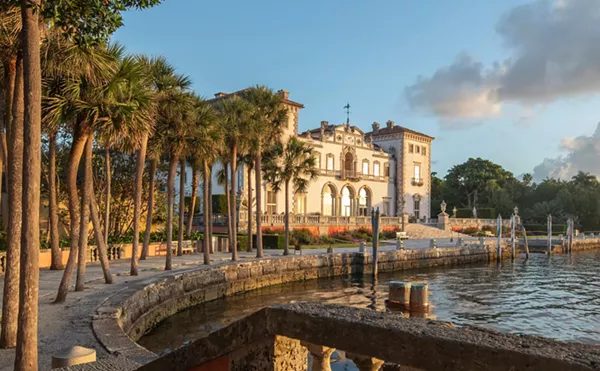Hurricanes swirling the trees and seas into a frenzy, earthquakes shaking buildings into rubble, the government restricting the rights of Americans as the country becomes more dangerous for its own citizens — it’s not hard to imagine that perhaps this is the end of days.
Pulitzer Prize- and Tony Award-winning, Emmy-nominated playwright Robert Schenkkan was inspired last October to illustrate his own imagined dark times in his play Building the Wall. It was written as a reaction to Trump’s cries to build a wall between Mexico and America to keep illegal immigrants out of the States. The two-person play, which takes place in a dystopian, Trumpian American prison, was penned well before the Donald took office. But with this work, Schenkkan captures the fear and horror many feel while living under this administration.
“Even though I thought the election would have a different outcome than it did, I thought, even by October, that we had crossed a serious line in our political life and that damage had been done. I needed to speak to that,” the writer reflects. “It wasn’t a specific response to the race-baiting candidate as much as the even more alarming response from the responsible political leaders, newspaper columnists, and talking heads that normalized this behavior. It’s a slippery slope, and that’s where democracy goes south.”
He explains, “I don’t typically write a lot of work that’s designed to promote a legislative issue. But I think of myself as a political writer, someone whose work is informed by my interest in politics.” Schenkkan is the author of numerous Broadway plays, won the Pulitzer for The Kentucky Cycle — a response to the Reagan/Bush years — and worked as a screenwriter. He penned two “LBJ plays” about President Lyndon Johnson, the first of which became 2014’s All the Way, a feature film for HBO, produced by Steven Spielberg and starring Bryan Cranston.
“That was more an attempt to wrestle with long-standing issues in American politics, particularly political issues that tend to polarize in a partisan manner like race and healthcare,” Schenkkan explains. By examining LBJ’s presidency, he was able to explore the contemporary origins and evolution of issues we still struggle with today.
Schenkkan's productions usually take a traditional, time-consuming route from inspiration to performing before an audience. The show creators decide if the play is better for New York or London, and then they work to manage the public response around that goal. But Building the Wall was different.
“This is a very specific attempt, very precise, to get this play and these issues in front of an American audience as quickly and widely as possible,” he says.
Instead, Schenkkan released his work to regional theater companies like City Theatre in Miami in conjunction with National New Play Network (NNPN), which is set to show at the Adrienne Arsht Center September 23 through October 8. It will star local actors Gregg Weiner and Karen Stephens. Schenkkan says he would've been disappointed if the play hadn’t been produced in Miami, home to nearly a half-million undocumented immigrants. He is impressed by the lengths the theater has gone to make this production available to the widest audience, with Spanish, Kreyol, and sign language translations.
“I felt the situation was urgent. As an artist and citizen, I need to respond now, immediately, before it would be too late,” he says. The play is 75 minutes without intermission. He describes it as a “gripping” encounter between two individuals that takes place in a federal prison. We don’t know why the criminal is being held, but the truth comes out during an interview with an historian curious about his side of the story.
“It’s a bit of dystopian fiction in the same way The Handmaid’s Tale or 1984 are.” Schenkkan says those classic stories offer precedent for “writing an imagined world that might evolve out of a crisis.”
The New York Times called Building the Wall “a must-see show.” And the playwright says the response so far has been “everything I possibly could have hoped for... very gratifying.” The Miami production will be the 16th staging since February, with 14 more scheduled to take place in the States. Others are planned for Vienna and Canada, and there are talks of one in London.
“People have been very shocked and moved and aroused and provoked in the best way. They want to discuss and process the issues the play raises,” Schenkkan says. During talk-back sessions after the performances, he says, about 80 percent of the audience remains to converse. A production of Building the Wall recently closed in Los Angeles after a five-and-a-half-month run. It was extended three times. Usually, shows held at that venue run about two weeks.
Of course, not everyone loves Schenkkan's politics. He says there have been some walkouts during performances. “It may be that they object to the play, or it may be they have a small bladder,” he says cheekily. He has also received angry letters and some online trolling, but that’s to be expected when you’re in the public eye.
“Rarely is one neutral about what I write,” he says. There has been no comment from the administration. “They have bigger fish to fry,” Schenkkan observes. “I think the White House seems more concerned with the dating habits of talking heads on MSNBC than what play is running on the arena stage.”
Building the Wall. 7:30 p.m. Saturday, September 23, through October 8 at the Adrienne Arsht Center for the Performing Arts, 1300 Biscayne Blvd., Miami; 305-949-6722; arshtcenter.org. Tickets cost $34 to $54.

Audio By Carbonatix
[
{
"name": "GPT - Billboard - Slot Inline - Content - Labeled - No Desktop",
"component": "22004575",
"insertPoint": "2",
"requiredCountToDisplay": "2"
},{
"name": "STN Player - Float - Mobile Only ",
"component": "22595215",
"insertPoint": "2",
"requiredCountToDisplay": "2"
},{
"name": "Editor Picks",
"component": "17482312",
"insertPoint": "4",
"requiredCountToDisplay": "1"
},{
"name": "Inline Links",
"component": "18711090",
"insertPoint": "8th",
"startingPoint": 8,
"requiredCountToDisplay": "7",
"maxInsertions": 25
},{
"name": "GPT - 2x Rectangles Desktop, Tower on Mobile - Labeled",
"component": "23181625",
"insertPoint": "8th",
"startingPoint": 8,
"requiredCountToDisplay": "7",
"maxInsertions": 25
},{
"name": "Inline Links",
"component": "18711090",
"insertPoint": "8th",
"startingPoint": 12,
"requiredCountToDisplay": "11",
"maxInsertions": 25
},{
"name": "GPT - Leaderboard to Tower - Slot Auto-select - Labeled",
"component": "17720761",
"insertPoint": "8th",
"startingPoint": 12,
"requiredCountToDisplay": "11",
"maxInsertions": 25
}
]













